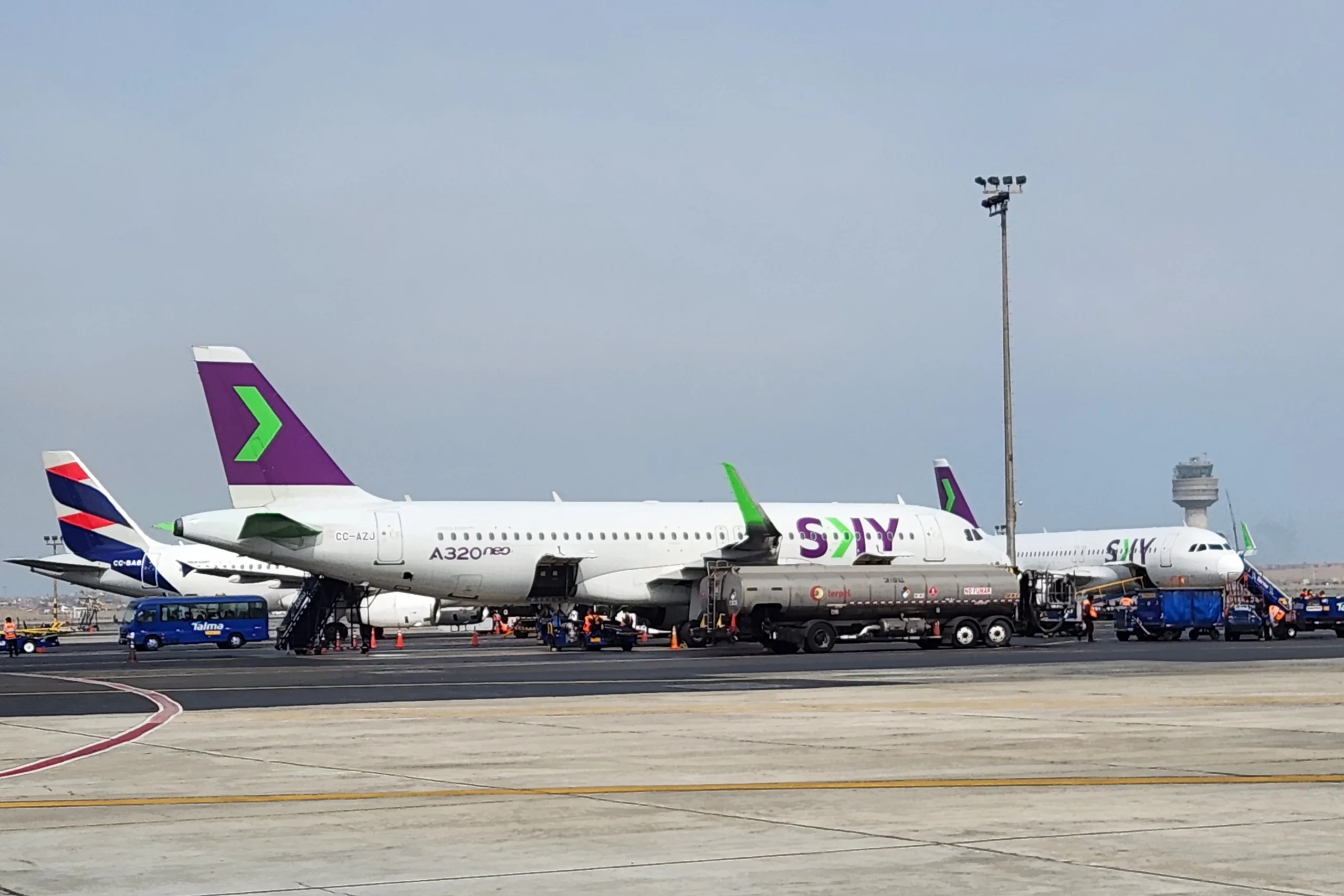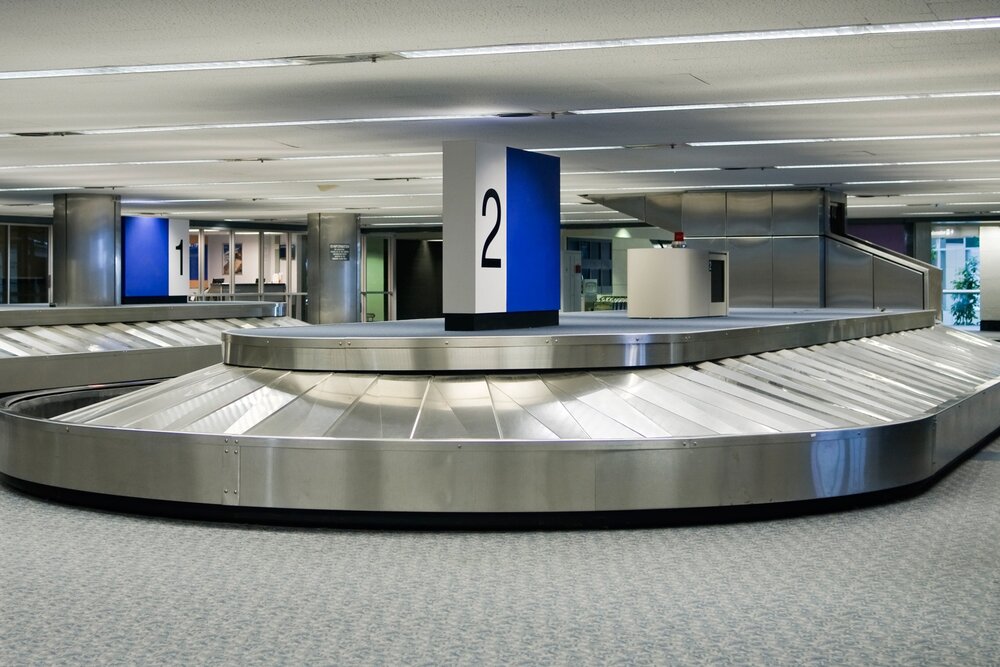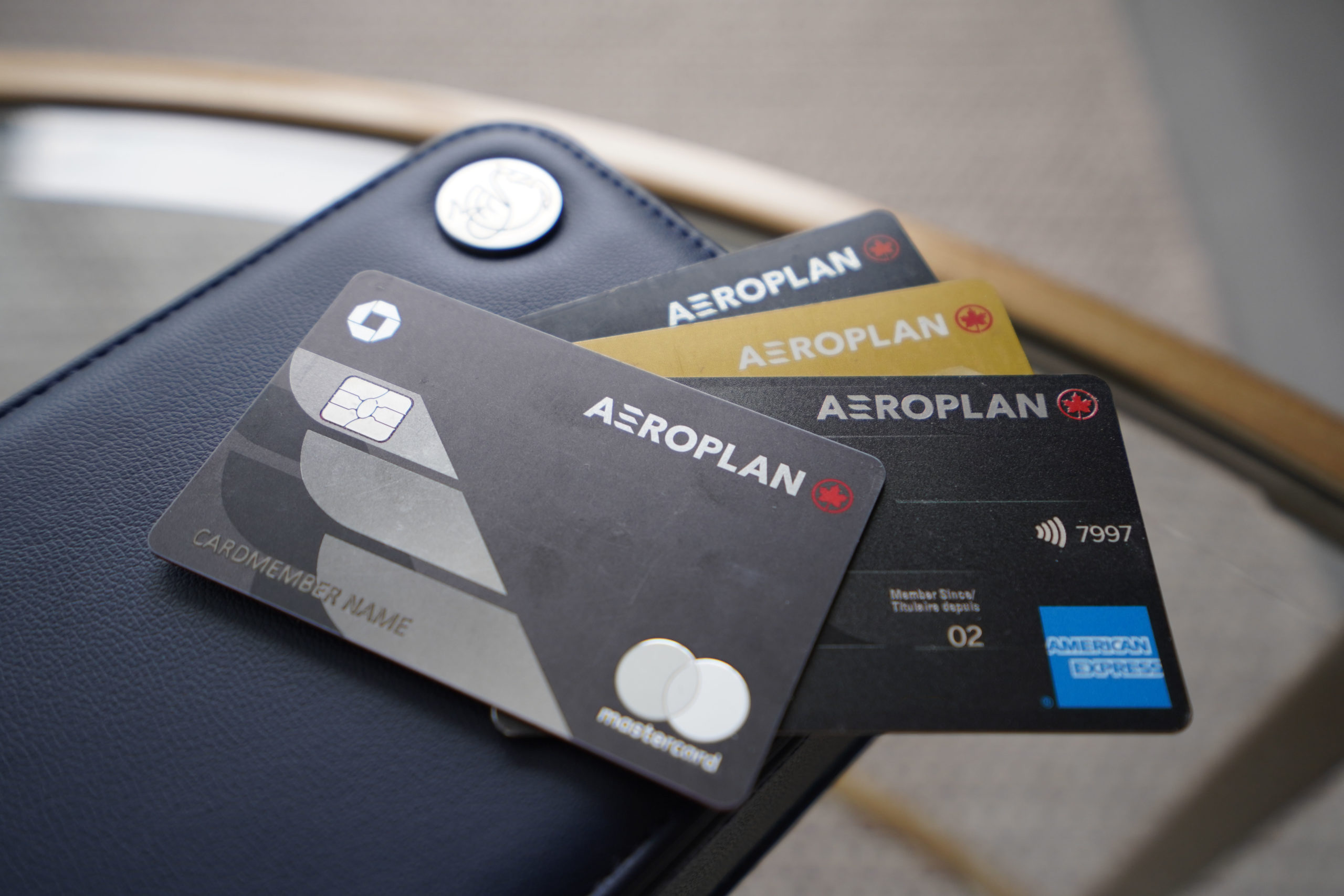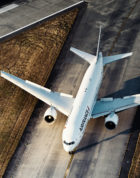In the current context of travel, it’s not uncommon to see images of airports brimming with stacks of unclaimed luggage, with each of those bags belonging to someone who would prefer to have their belongings with them instead of in a massive heap.
Unbeknownst to many travellers, if your bag is damaged, delayed, or lost during transit, you can claim reasonable expenses incurred as a result of your bag not arriving with you. Plus, these expenses cover a lot more than a toothbrush and a new pair of socks — if there’s something in your lost/delayed bag that you need, in most cases, you can claim it.
While some jurisdictions spell out passenger protections for lost/delayed baggage, such as the Air Passenger Protection Regulations in Canada or EU261 in Europe, the Montreal Convention is a lesser known treaty that spells out air carriers’ liabilities in the event of damaged, delayed, or lost luggage (amongst other circumstances).
Let’s have a look at what the Montreal Convention is and why you should know about it.
In This Post
- What Is the Montreal Convention?
- When Does the Montreal Convention Apply?
- Damaged, Delayed, or Lost Baggage
- What Are Damages?
- A Real-Life Example
- What to Do If Your Bag Is Delayed or Lost
- Conclusion
What Is the Montreal Convention?
The Montreal Convention is a treaty which has been signed and ratified by 132 nation states and the European Union.
The Montreal Convention provides uniform rules and regulations for the international carriage of passengers, cargo, and baggage. Signed in Montreal in 1999 and effective as of 2003, it is an update to the 1929 Warsaw Convention and 1955 Hague Protocol.
In Canada, the Montreal Convention is not only ratified, but it’s also incorporated into the country’s laws under the Carriage by Air Act.
The treaty provides consistency in the rules related to the international carriage of passengers, baggage, and cargo.

For example, under the Montreal Convention, if an air carrier injures or causes the death of a passenger, they are liable to pay damages of up to roughly $175,000 (USD).
This amount could be greater, but if the airline can prove that the damages caused were not due to their negligence or caused by a third party, they won’t be liable for a greater amount.
During the carriage of cargo, should the airline damage the contents of the cargo, they are liable to cover damages.
The most frequent application of the Montreal Convention, though, is for damaged, delayed, or lost baggage.
When Does the Montreal Convention Apply?
If you are travelling from a country that has signed and ratified the Montreal Convention to another country that has signed and ratified the Montreal Convention, the Montreal Convention applies.
For example, since both Australia and Canada have signed and ratified the Convention, the Montreal Convention applies when travelling between the two countries. The same is true for travel between Canada and the United States.

If your departure and arrival points are within a country the has signed and ratified the Montreal Convention and there is not a planned stopover in another country, the Montreal Convention does not apply.
For example, travelling from Vancouver to Toronto, the Montreal Convention does not apply.
Note, however, that Canada’s Air Passenger Protection Regulations essentially extend the Montreal Convention’s guidelines for baggage to domestic flights. Therefore, even flying domestically within Canada, you are covered for damaged, delayed, and lost baggage.

If your departure and arrival points are within a country that has signed and ratified the Montreal Convention and you have a planned stopover in a country that has signed and ratified the Montreal Convention, the Montreal Convention applies.
For example, if you plan to do a stopover in an island in Micronesia, a signatory of the Montreal Convention, while doing the United Island Hopper, the Convention applies if you start and end your journey between Guam and Honolulu – both of which are part of the United States.
If your departure and arrival points are within a country that has signed and ratified the Montreal Convention and you have a stopover in a country that has not signed and ratified the Montreal Convention, the Montreal Convention applies.
For example, if you are travelling from Almaty to Nur-Sultan (within Kazakhstan, which is a country that has signed/ratified the Montreal Convention) via Tashkent (Uzbekistan has not signed/ratified the Montreal Convention), the Montreal Convention applies.
Damaged, Delayed, or Lost Baggage
If your bags have been destroyed, lost, or damaged while they were under the airline’s care, and if the damages were not caused due to defective or poor quality baggage (e.g., a cardboard box), you can claim damages under the Montreal Convention as long as your flight routing qualifies.
Carry-on baggage is also covered by this provision, although it is difficult to think of a situation where the airline could lose, damage, or delay your carry-on baggage – unless, of course, you were forced to check your bag at the gate.

In the event that your checked baggage has not been delivered to you by 21 days after its original date of arrival, it is considered lost, and you can claim damages that result from the loss of your baggage.
But what if your bags are just delayed and not lost?

Article 19 states that the carrier is liable for damage caused by delays to passengers and baggage during air travel. There is, however, a qualifying statement that suggests that the carrier is not liable for damages from delays that are outside of its control.
Websites that offer (paid) assistance for claims with airlines list inclement weather, political/civil unrest, union/airport personnel strikes, bird strikes, and other reasons as situations where airlines are not liable for damages caused due to delay.
While the language around delays to passengers is quite murky, delayed luggage is quite clear: if you dropped your bag off at the departure airport and it doesn’t arrive at the destination airport, you have yourself a delay!
Let’s have a look at what the Montreal Convention states in regard to luggage delays.

Article 22 states the liability limits that carriers are subject to in the event of a delay. You’ll notice that the amounts are stated in Special Drawing Rights, which is a “basket” of currencies created by the International Monetary Fund and the value is based on the U.S. dollar, the Chinese renminbi, the Japanese yen, the euro, and the British pound sterling.
Carriers are liable for up to 1,288 Special Drawing Rights in the event of destruction, loss, damage, or delay to your baggage. At the time of writing, that is equivalent to around $2,280 (CAD), which seems like a substantial amount for a lost or delayed bag.
Indeed, this is certainly greater than any airline would volunteer to cover when you originally file a baggage claim. In the event of delayed luggage, depending on the lost baggage staff you speak to, you may be told that you’re covered to go and buy basic necessities but nothing more, which clearly is not the case.
It is important to note that just because the airline is liable for 1,288 SDR doesn’t mean that you are entitled to claim the full amount. Rather, this means that you can claim damages of up to 1,288 SDR in the event of a lost or delayed bag.
You can also submit damages of more than 1,288 SDR if you can substantiate your claim.
What Are Damages?
When you incur additional costs that arise as a result of the loss, damage, or delay to your bag, you have incurred damages. In other words, this covers any time when you have to spend money that you wouldn’t have otherwise spent due to your baggage not arriving on time.
If you packed your toothbrush and other hygienic supplies in your checked luggage, and you are now without them at your destination and have to purchase new ones, you now have damages that arose as a result of your lost or delayed luggage.
If you are headed to a beach resort and your bathing suit was packed in your checked luggage, the new bathing suit that you will need to buy, that you wouldn’t otherwise have had to buy, as a result of the delay or loss of your baggage counts as incurred damages.
Maybe you have an important business meeting and your suit was in your delayed/lost suitcase. You may be able to make a claim for a replacement suit that you wouldn’t have otherwise had to purchase.

To make a claim, you must be able to reasonably justify your expenses, and you’ll need to retain receipts for all of the incurred damages.
In other words, buying a new winter coat when your bag doesn’t arrive in the Maldives isn’t a reasonable expense. Buying some sunscreen, a bathing suit, and a sun hat would be reasonable expenses if those items were in your delayed bag and you would have otherwise needed them at your destination.
If you’re headed for a ski vacation and your equipment is delayed, buying expensive ski gear might be hard to justify as well, but you can always rent gear in the meantime and claim for the rental costs.
The keyword with all claims is “reasonable.” You should use your best judgment in your purchases, being cognizant of the fact that the airline will scrutinize them, and you may need to justify why the purchase was necessary.
A Real-Life Example
A few years ago, my wife and I flew from Dublin to Split via London with British Airways. When we arrived in Split, my bag came out on the carousel, but hers did not.
We filed a property irregularity report (PIR) at the airport in Split and headed to our hotel, Le Méridien Lav.
The weather in Split was much different than the weather in Dublin and all her warm weather clothing was in her checked luggage, so my wife had to buy some toiletries and appropriate clothing that she otherwise would not have had to buy had her baggage arrived on time.
The luggage was located later on that day, and was set to be delivered to our hotel on the evening of the day after we arrived.

In the meantime, she took a cab to the nearest shopping centre, claimed some reasonable expenses, and kept all documentation relating to her purchases.
We submitted the receipts and a detailed claim form to British Airways, citing the appropriate parts of the Montreal Convention that she was claiming damages under.
Upon receipt of the bag, we also noticed significant damage and filed a separate claim under the Montreal Convention. The airport staff were helpful throughout the process.
In the end, all of her claimed damages, including toiletries, a bathing suit, a few outfits, and shoes, as well as taxi fare to and from the shopping centre, were covered. Additionally, she received compensation for the damage to her bag, as well as a £100 British Airways voucher for the inconvenience.
She spent around $500 (CAD) total, and everything was reimbursed. The money was deposited directly in our bank account in a reasonable amount of time.
What to Do If Your Bag Is Delayed or Lost
If your bag doesn’t arrive with you at your final destination, the first thing to do is to know what your rights are. You should read through the Montreal Convention and your airline’s tariff, which spells out the agreement between you and the airline, keeping in mind that the Montreal Convention and other relevant laws take precedence over the airline’s tariff.
The next thing you’ll want to do is file a property irregularity report (PIR) at the airport. The baggage desks are usually located close to the luggage carousels, but in the rare case when there’s no desk or personnel available for your airline, there will be an online report form for you to fill out instead.
After filing out the report either in person or online, you’ll be provided with an acknowledgement and a tracking number for your bag.

Then, at this point, you can now start claiming damages for reasonable interim expenses that you wouldn’t have otherwise had to make if you had your baggage. Be sure to keep detailed receipts, rather than just credit card charge slips, as you are going to need them when you make a claim in writing to the airline within 21 days of arrival.
There is an excellent step-by-step guide (with detailed information for air passenger rights in general) for Canadians at the Air Passenger Rights website.
The last step is to wait for the result of your claim. This may take some time, so you’ll have to be patient.
Depending on the outcome, you will either receive some or all of the damages that you claimed, or you may need to escalate your claim further if you are not satisfied with the result.
In Canada, you can also file a claim with the Canadian Transportation Agency who will mediate the dispute (you will need patience here as there is often a significant backlog of cases, and this may take a couple of years), or you can escalate the claim to your jurisdiction’s small claims court.
Leveraging Your Travel Insurance
In the event that the airline denies part of your claim amount which it believes to be beyond reasonable or outside of its liability, you may claim the excess through your travel insurance, which you could have through your credit card or as a standalone policy.
Keep in mind that unlike standalone insurance policies that you purchase, lost and/or delayed baggage insurance coverage through credit cards is only effective if you charge the full cost of the flight to the card – or in the case of award bookings made on airline co-branded and rewards cards, if you charge the taxes and fees of the award booking to the card.

Now, there’s a time limit of usually 60 days for you to file a claim with the insurance provider, and since claims with airlines often take a long time, it would be prudent for you to open concurrent claims with both the airline and the insurance provider. Your insurance provider will then wait for the results of your claim with the airline before deciding what they will cover.
It also bears repeating that your insurance provider, as a last payor, will usually only pay what the airline doesn’t cover. This means you can’t and mustn’t make a claim with the insurance provider alone – you must always first (or concurrently) make a claim with the airline.
To be sure of what’s included with your insurance coverage, it’s important to read and understand the welcome kit that comes with your credit card or your standalone policy.
Conclusion
While lost or delayed baggage is certainly frustrating, knowing the details of what airlines are liable for can certainly alleviate your luggage woes.
By being aware of the Montreal Convention and other rights as an air passenger, you now know that you can claim damages if your bag is lost, damaged, or delayed.
While the inconvenience of being without your stuff is annoying, coming back with a new toothbrush, Speedo, or three-piece suit is an optimal outcome for having suffered damages.


















nowhere on the internet or flyertalk can i find an answer on this:
checked in with airline Z, flying aaa-bbb-ccc-ddd.
a-b is on airline Z and is a domestic usa flight, 500 miles.
b-c-d is on airline Y. airport c is east asia and airport d is southeast asia. the journey is 7000 miles.
no luggage delievered at d. it is delayed 24 hours. i have to get $100 worth of clothing and sundries during the delay because those clothes and sunscreen are in the delayed suitcase.
WHICH AIRLINE DO I CLAIM FROM? airline Z (checkin airline) or airline Y (delivering airline?)
You typically make a claim with the delivering airline. So, in your case, claim with airline Y.
Great article — but the liability cap was 1131 SDR in 2019 and it is currently 1288 SDR. You may want to update the article.
Excellent article. Too bad I read this after the events which occurred to my daughter, an Olympic athlete who’s skates were in her delayed luggage when arriving to a worlds championship. Because her competition schedule was so hectic she got around to making a claim for delayed luggage 3 months later and not the 21 days specified. Air Canada said too bad, you passed your delay. What can be done.
TJ how did it go with making the delayed baggage claim? you never updated the post?
The post will be updated shortly here. We got all of the expenses covered plus a 100 GBP voucher for use with BA for the inconvenience.
Does anyone know where i stand if the airline lost my bag twice? first back on the 19th Dec 2019 while in Australia and didn’t find it until the 5th Feb and then sent it back to me in Canada where i live, but sent it to the wrong airport and it ended up somewhere in the USA – So they lost my bag twice. Doing a claim form they are asking for a receipt for everything (which is imposable) Any information would be great.
Interesting situation as fiancee and I flew DFW – LAX on United and arrived with damaged luggage wheels(it was ripped off). Went to baggage service counter and put in a claim. Was offered a shiny brand new luggage (much more expensive and better quality than my mine!) and swapped on the spot.
Fiancee was happy because it came in rose gold.
informative thank you
Once arrived in Rhodes Greece, my sports gear bag did not followed us.
I was told that sports equipment are not under the same rules and was not able to be compensated for the 2 day delay in arriving at the hotel.
Which airline did you fly with? It would be good to look at the tariff to see if it specifically spells out different rules for sporting equipment. Otherwise, I would believe that it should be covered. You should be able to make Montreal Convention claims up to two years after the incident, too.
Not directly related, but I have a question about checked luggage.
Say you’re flying a complex itinerary (in my case, as a mini-RTW), with multiple segments and destinations.
In my case – ignoring the routing I’ll be taking to get there – I’ll be going from YYZ-NRT-PER-TXL-YYZ (NRT and TXL are technically “stopovers” and PER is the “destination” for Aeroplan purposes). I’ll want to have my checked luggage at each of these destinations.
But I don’t have direct flights. To get from YYZ-NRT, for example, my routing is YYZ-LAX-ICN-NRT. To further complicate matters, the YYZ-LAX segment is aboard AC while LAX-ICN and ICN-NRT are on OZ.
So the question is, where will I need to pick up my checked bags?
Ideally, IMO, they’ll arrive at NRT without any intervention on my part, being routed seamlessly from YYZ by the airlines.
Worst case, I’ll have to pick them up and re-check them for each segment (ie. at LAX, ICN, and NRT).
Or maybe it’s the case where I’ll only have to do that when I switch airlines? Since LAX-ICN-NRT is all aboard OZ, maybe I’d have to pick up/re-check at LAX after my AC flight, but won’t need to do so at ICN?
As long as you have boarding passes, I believe your bags will be checked through to the stopover points (unless the airline says otherwise). But, flying through the US, I would ask the agent at check-in if you need to pick up luggage and check it in again. I recently through ZAG-VIE-LHR-FRA-BOS-YYZ (all layovers, no stopovers), and the bag was checked through to YYZ in ZAG.
Interesting to know that the Montreal Convention only applies BETWEEN countries..you would think it’s a foregone conclusion that if I’m flying within Canada, and experience issues, that you’d be within your rights of the Montreal Convention. I’d love to know the logic behind that one.
Nonetheless, it’s always great to know your rights. Now the question is…can you double dip with your credit card that provides protection in these cases? :p
Thanks for the article
Great info and great post! How does the travel insurance on credit cards like Amex platinum come into play?
For flights booked on points, it would be worth knowing if you are covered if you pay the taxes/fees with the Platinum card. When I filed the claim with British Airways, one of the first questions on the form was if we had insurance through a credit card (they said it likely offered greater coverage than what they could, but I imagine that was just to deter people from filing Montreal Convention claims).